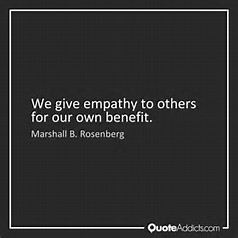No sympathy? No Drama (unless you like drama)
This blog; offers a light-hearted observation of human behaviour, our tendency to avoid direct confrontation and what happens when we are safely shielded by electronic devices. It concludes with a few insights; which may help the reader to consider an alternative solution to resolving conflict.
It’s not me, it’s you
Nowadays, it seems; a lot of people thrive on slinging mud around on social media, and perhaps; as a means of catharsis, it relieves an eminence of pent up tension. Frustration from earlier events of the day, sometimes turns even the mildest of individuals, into keyboard barbarians. However; why shouldn’t we use this platform, as a safe dumping ground for emotional detritus?, when the worst kind of consequence is a click of the ‘unfriend’ button or a line of red-faced Emojis. Is this not a sensible way to vent? After all, who, in the current economic climate, would really want to risk losing their job? or having to sleep on the sofa next to a flatulent family pet after a row with their spouse?
Facebook is frequently used as a virtual battleground; where no holds are barred, particularly when it comes to stating one’s rightful opinion. Putting other people down also appears to cause much amusement for some. Being on the receiving end of this mockery and criticism is another matter entirely. Being offended is apparently the behaviour of ‘snowflakes’, who need to ‘grow a pair’. In order to avoid showing our vulnerability, it is a common reaction, to strike back. This then becomes a power battle of wills as we try and outdo the other, with our banter and our intellect. The struggle for power and control can be palpable, in debates over politics, religion, public breastfeeding or who should get through to the X Factor semi-final.
But can we honestly say that this leaves us feeling good about the World and our place in it? Personally. I find it all rather depressing and I know there is another way, if people want it.
Empathy not sympathy
Observation informs me that there could be some confusion over the definition of the word; ’empathy’. It sounds similar to ‘sympathy’, but the two are not interchangeable.
People often make comments along the lines of; ” stop playing the victim”, “you’re just looking for sympathy” or “stop trying to manipulate me into feeling sorry for you”, as though they think this will give the other person power over them. The ironic thing about sympathy is that it can be very condescending. When we sympathise, we actually come from a nurturing position of being more fortunate than the other and we believe we have the power to comfort and reassure. When we offer sympathy we are also making ourselves responsible for the other person to some degree. Perhaps this avoidance of responsibility is what gets in the way of people offering empathy because they think it is the same thing? After all, everyone has their own issues to deal with.
Empathy is not about feeling pity for another person. Empathy is about listening and taking an open-minded interest in what the other person is experiencing and saying.
This is not to say we must agree that the other person’s opinion is right, or that we must admit to being a clueless numpty. Nor does it mean we have to stay silent, to appease the other. Far from it. Empathy can hopefully become a two-way method of communication, however it does have to start somewhere.
Why me?
You may be questioning whether empathy is something you even need or want in your life. It might be sounding like a complex, alien concept and you’re yet to be convinced.
Empathy isn’t some divine skill, handed from the Gods and distributed only to those who undergo psychotherapy training, or vegans with a penchant for incense and tarot cards. Nor is empathy just a whimsical buzzword of the moment.
Human civilization has survived thousands of years because of empathy, and our innate need for belonging. We all possess the gift of empathy. It’s about a willingness to listen to other people’s points of view, because we respect their right to have one, as much as we want them to respect ours. This concept is easy to foster when we are part of a flock as we will tend to have similar views to those we surround ourselves with. The challenge comes from interactions with those who we perceive as very different.
One possible blockage to empathy, other than the aforementioned power struggle, may be our resistance to change. If we give credence to another viewpoint, it may lead us to question our existing beliefs, which can be rather unsettling. Change can be scary for many.
The possibilities
When we really listen to the other; with an inquiring mind rather than a critical one, we are treating them as an equal. This powerful demonstration can dissolve barriers and disarm. By understanding; that other people’s reasons for being as they are; come from a place of self-protection rather than a means of attack, we begin to feel less threatened. When we have less of a need to protect ourselves, with aggression towards and denigration of the Other, we invite connection and compassion. Empathy is our superpower.

Leave a Reply